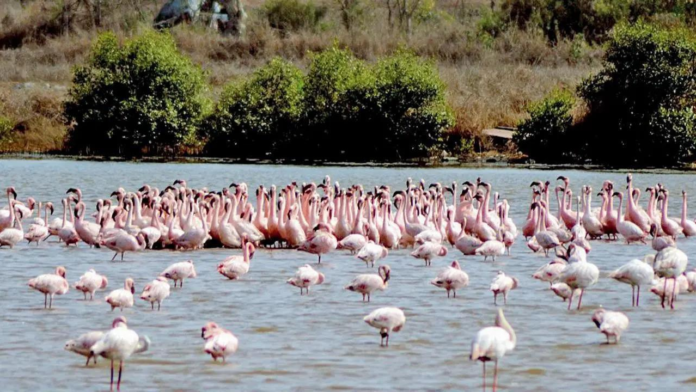Researchers at the Indian Institute of Management (IIM), Lucknow have studied the impact of birdwatching on tourists and whether it can be used to promote environmentally-responsible behaviour.
Published in the prestigious “Tourism Recreation Research” journal, a paper co-authored by Anirban Chakraborty, Associate Professor, IIM-Lucknow, and Debankur Saha, Assistant Professor, IFMR Graduate Business School, Krea University, investigates how birdwatching creates an immersive nature experience for individuals and motivates them to act in an environmentally-conscious manner.
According to officials, the study is crucial for stakeholders to design policies that promote sustainability and environmental stewardship. The research team used the Stimulus-Organism-Response (SOR) framework to develop a conceptual model and analyse the responses of more than 300 bird-watching tourists.
The research found that birdwatching provides the opportunity to witness the splendour of avian species in their natural habitat, creating a lasting and memorable impact on tourists.
The research also revealed that the quality of the bird-watching experience (guidance, informativeness and service experience) is directly related to the strength of motivation for exhibiting environmentally-responsible behaviour (ERB). Hence, well-educated guides, capable of explaining the intricate interconnectedness of local ecosystems, are crucial for delivering an impactful experience.
“India is home to more than 1,300 species of birds. This represents more than 12 per cent of the world`s total bird diversity. Hence, it offers tremendous potential for avi-tourism (birdwatching). The growing interest in experiential tourism can be leveraged to promote it. A sustainable, eco-friendly tapping of this potential will generate the funds required for the conservation of these often-neglected habitats,” Chakraborty said.
“A well-designed avi-tourism encounter can be a transformative experience for avi-tourists. It may foster in them appreciation of the complex ecosystem and empathy towards the local communities. Even if a small fraction of such avi-tourists turns into environmental evangelists, the larger interest of the society will get served,” he added.
The proposed framework offers a guide for tourism operators to focus on improving tourist experiences, resulting in environmentally-conscious tourists.
“Additionally, the insights can also be used by the policy makers to design tourism activities and policies that will promote environmental sustainability, ultimately contributing to the society`s overall welfare,” Chakraborty said.
This story has been sourced from a third party syndicated feed, agencies. Mid-day accepts no responsibility or liability for its dependability, trustworthiness, reliability and data of the text. Mid-day management/mid-day.com reserves the sole right to alter, delete or remove (without notice) the content in its absolute discretion for any reason whatsoever


